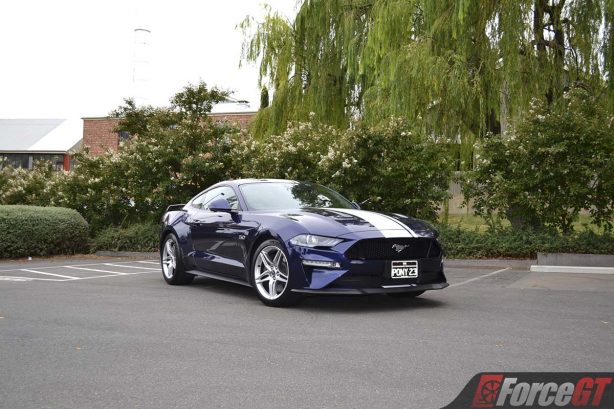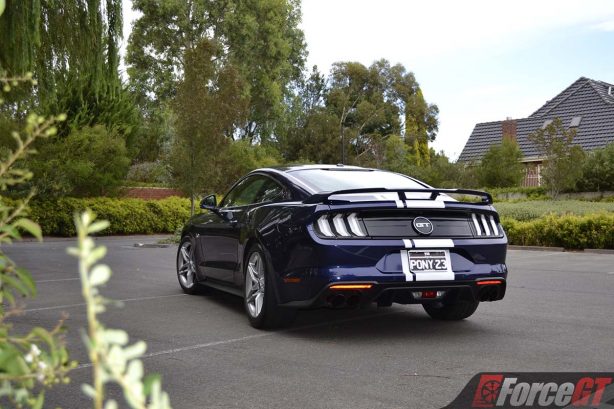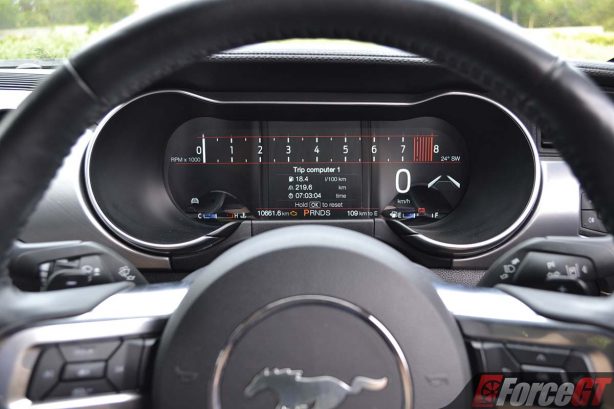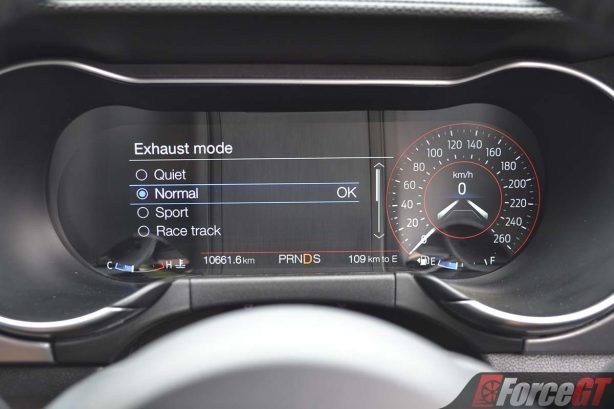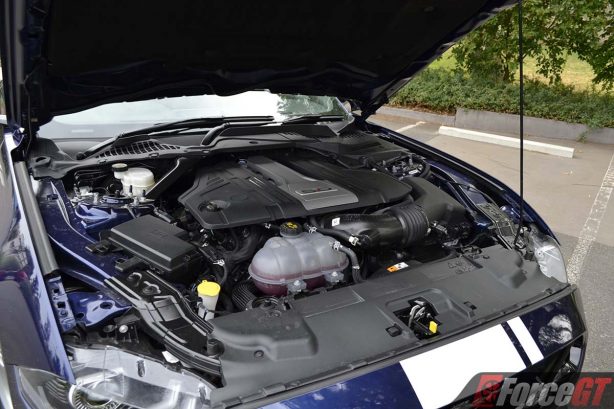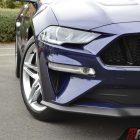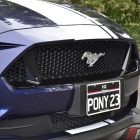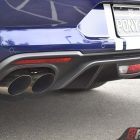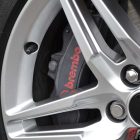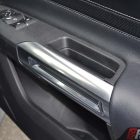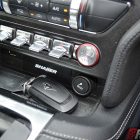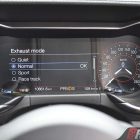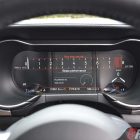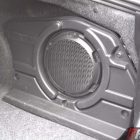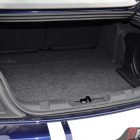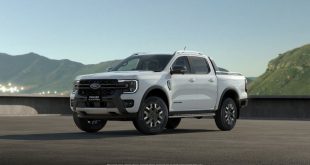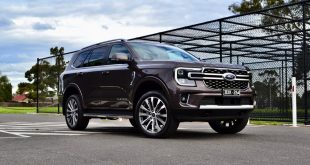The latest incarnation of the Ford Mustang has not only cement itself as the best-selling sports car in the world in the last three years with 125,000 sold across 146 countries, but is also Australia’s favourite sports car for the past two years, vetting the appetite of petrol heads still reeling from the demise of home grown V8s.
And with a 2018 update that included a nip and tuck for an even tougher stance, some added safety tech, and importantly, a vastly improved interior, it’s more enticing than ever before.
While much has been written about the Mustang since its launch, including here at ForceGT, I am arguably one of the last motoring journalists in Australia to get behind the wheel of the American muscle car!
So instead of writing about what you might already know, I’ve summarised the good and the bad about the Mustang after spending a week behind the wheel of a Mustang GT Automatic.
Pros:
Bang-for-your-buck
Its bang-for-your-buck equation remains unchallenged even with the post facelift price rise and arrival of its perennial cross-town rival, the HSV converted Chevrolet Camaro. Priced from ‘just’ $63,290 plus on-roads for the GT 6-speed manual, the ‘Stang is a whopping $23,700 cheaper compared to its opponent from Detroit.
The 10-speed auto in the GT tested here – which, incidentally is co-developed with GM and also found in the Camaro – costs an extra $3,000.
That equates to just $195.55 per kilowatt!
As a comparison, Australia’s favourite small car, the Toyota Corolla Ascent Sport automatic costs $194.96 per kilowatt.
Superior new interior
The pre-facelift Mustang’s plasticky interior has, deservedly, copped much criticism but the new one is a huge improvement.
Most touch points are now soft to the touch, including the upper dash, centre stack and door trims for a more premium feel. The centre console adds a new hand-stitched padded knee bolsters, while the door handles, rings and bezels are all finished in more upmarket aluminium.
However, the biggest highlight of the facelifted Mustang’s cabin is the awesome new customisable 12-inch fully digital instrument cluster, which according to Ford, is inspired by the Le Mans-winning Ford GT racecar.
Drivers can choose from three separate displays, with customisable options for Normal, Sport, Track and Drag Strip modes, as well as colour and gauge layout.
The now factory-fitted, six-way leather-upholstered Recaro sports seats are a must tick option ($3,000), too, as they not only look great but keep you securely cocooned on track days.
Exhaust modes
Standard on all V8 GT models, drivers can now dial up the V8’s raucous exhaust note simply by pushing a button, thanks to the new active valve exhaust system. Available in Normal, Quiet, Track and Sport modes, the system tailors the exhaust note to match the entire rev range.
The deep, solid and metallic engine note in Track or Sport modes is definitely one of the best noises on any production car. It’s an intoxicating noise that encourages you to push the car to its limits.
And to keep you on a friendly term with your neighbours, you can even put the exhaust in Quiet mode early in the morning or late at night!
Cons:
Thirst
While this will unlikely be a deal breaker for most who are considering a Mustang V8, or any other V8s for that matter, it’s worth noting the naturally aspirated lump downs an incredible 15.0L/100km on test. And to make things worst, it demands the pricier premium juice, too.
But all will be forgotten when it serves up its 339kW of power and 556Nm of torque – a jump of 33kW and 26Nm, respectively, over the pre-facelift model – and rockets to 100km/h from a standstill in just 5.0 seconds (tested).
It also revs quicker and harder to deliver a beefier mid-range that pins you to your seats every time you floor the pedal.
It’s heavy
Tipping the scales at 1,784kg, the Mustang is one of the heaviest sports cars in its class. The Camaro SS coupé with an automatic just peeps the Mustang at 1,710kg, while the more expensive M4 Competition coupé with an automatic is a significant 244kg lighter.
While Ford has sharpened the underpinnings with revised dampers and a new cross-axis joint in the rear suspension to improve handling, there’s no escaping the Mustang’s portly size, especially around tight bends.
It just isn’t as nimble as its more polished – and expensive – European counterparts.
Verdict
Design & Comfort
Performance & Handling
Quality
Economy
Equipment & Features
OUR SCORE
4.0/5
+ Plus
- Glorious V8 soundtrack made better with bi-modal exhaust
- Exemplary ride quality and cabin comfort
- Smooth 10-speed auto
– Minus
- Thirsty V8 that demands 98 RON
- Heavy
- Barely usable rear seats
Overall
Despite some of its short comings, the latest Ford Mustang is still one of the best sports cars on the planet with tonnes of character and a guaranteed smile every time.
2019 Ford Mustang GT coupé pricing and specification
| Price (excluding on-roads): | From $63,290 As tested: $73,840 (GT automatic) Tested options:
|
| Warranty: | 5 years/ unlimited kilometre |
| Warranty Customer Assistance: | 1 year roadside |
| Service Intervals: | 12 months/15,000km |
| Country of Origin: | United States |
| Engine: | 5.0-litre naturally aspirated V8 petrol: 339kW @ 7,000rpm, 556Nm @ 4,600rpm |
| Transmission: | 10-speed automatic |
| Drivetrain: | Rear-wheel drive |
| 0-100km/h (seconds): | Claimed: 4.5 / Tested: 5.0 |
| Combined Fuel Consumption (L/100km): | Claimed: 12.7/ Tested: 15.0 |
| Ron Rating: | 98 ULP |
| Fuel Capacity (L): | 61 |
| Body: | Two-door coupé, 4 seats |
| Safety: |
|
| Dimensions (L/W/H/W-B) mm: | 4,789/1,916/1,387/2,720 |
| Kerb Weight (kg): | 1,784 |
| Entertainment: |
|
Competitors:
BMW M4, Lexus RC F, Mercedes-AMG C63 S, Chevrolet Camaro SS, Audi RS 5 Coupe, Toyota GR Supra
 ForceGT.com Car News, Car Reviews, Video Reviews, Tuning and much more.
ForceGT.com Car News, Car Reviews, Video Reviews, Tuning and much more. 